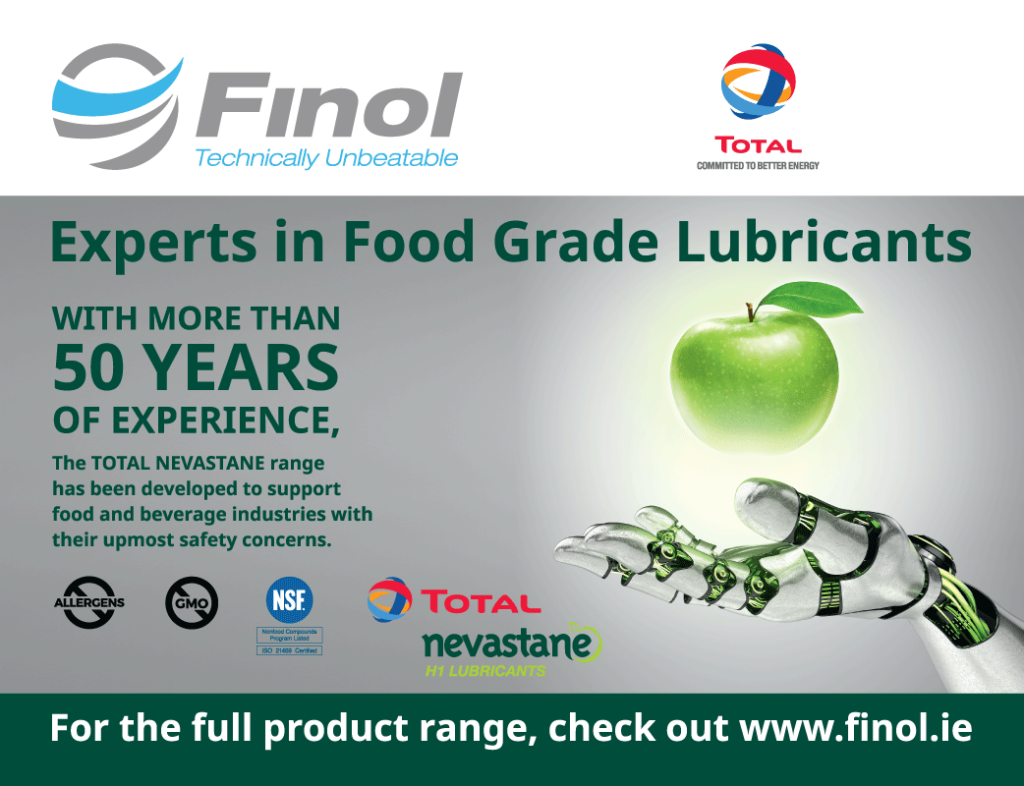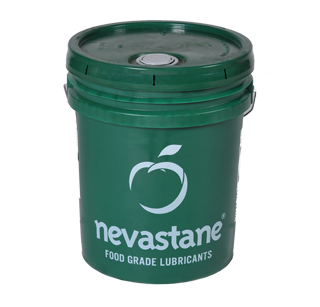Food for Thought: The Importance of Food Grade Lubricants
For companies that deal with food, drink or medication, the health and safety of their customers are their biggest priority. High standards of hygiene and sanitation are demanded all the way from production to the time they reach the end user. Leakages can happen and are an unavoidable part of all industry and maintenance. These lubricants won’t discriminate when it comes to the material it comes in contact with. It is vital for these industries to select the right lubricant for the job, but there is a vast amount of regulations and registrations that must be met.
Food grade or incidental contact lubricants are specifically designed to meet strict regulatory limitations. This means that the base oils, thickeners and performance additives used to create the lubricant are measured and controlled by a fraction of a percent in overall formulations. Why is this so critical? Even with a high level of carefulness and due diligence, the transfer of trace amounts of lubricant to a food contact surface, food packaging or the food itself can happen, regardless of procedures. If this does occur, a company has to make difficult decisions about the safety of their product and whether it is unfit for distribution, which in turn, could lead to a number of drastic measures – product disposal, destruction or, in the worst case, recall. Using food grade lubricants offer companies much better odds of avoiding such costly mistakes.
No ordinary lubricant
Food grade lubricants are often discussed in relation to HACCP (Hazard analysis and critical control point) plans within food processing operations. The advantage of using food grade lubricants is their ability to limit the introduction of potentially hazardous chemicals that could contaminate the food product and cause harm to human health if ingested. Most operators realise that food grade lubricants are a much-needed solution to addressing critical control points or processes where contact between the food and lubricant is possible due to exposed lubrication points or the proximity of the machinery to the production line.
What is less obvious, but just as important, is the key role food grade lubricants play in helping the food industry address some of its most pressing food safety concerns. Today’s food processors are focused on numerous issues that affect consumers worldwide including areas such as allergen control, microbial contamination, traceability, smart packaging compatibility and workforce management. The global lubricant industry has advanced the chemistry of lubricant formulation significantly over the past ten to fifteen years, bringing performance to new levels. The use of food grade lubricants offers processors much better odds of avoiding such costly mistakes.
Allergen control
An increasingly important factor in protecting consumers’ health and safety is allergen control. One of the biggest challenges for food manufacturers is that international requirements for allergen labelling and control can be inconsistent – encompassing a wide-ranging array of allergenic substances from the commonly recognised eggs and soy, to sulphites, sesame and even pollen. The good news is that food grade lubricants (whether H1 Registered or ISO 21469 Certified) place an importance on careful ingredient traceability and control, meaning food grade lubricant suppliers should be able to confirm the presence or absence of the most common allergenic substances. This, in turn, removes the lubricant as a potential source of allergen contamination.
Global markets and regulatory compliance
Food safety regulations are constantly evolving and the Irish Food Safety Authority of Ireland (FSAI) is no exception. The main function of the FSAI is to protect consumers by working with processors to ensure a standard of safety that is vigorously withheld. Facilities must create and implement a food safety system that includes an analysis of hazards and risk-based preventive methods. Preventive methods are required to ensure that hazards will be reduced or prevented and can include process, food allergen and sanitation controls, as well as supply-chain controls and a recall plan. Food processors must ensure the safety and control measures are upheld for their respective regions and markets. This translates into increased scrutiny on hygiene and processing plant controls for food producers making products. For processors looking to improve their maintenance plan, using registered food grade lubricants is an excellent and straightforward option.
Keeping harmful microbes at bay
Many food grade lubricants found on the market today include special additives that help reduce the growth of microbial organisms. These anti-microbial properties may be useful under certain use conditions where machinery is in frequent contact with organic matter or exposed to steam and moisture or is difficult to clean. Anti-microbials within the lubricant can help extend the life of the lubricant itself and can deliver some protection against the growth of organisms in and around lubricated parts and in processing equipment. However, there are mixed perceptions around these particular lubricants.
Food processors must perform due diligence and ask the right questions when considering lubricants with anti-microbial claims or properties. The first priority is to ensure that the lubricant manufacturer has the appropriate regulatory approvals for any preservative or anti-microbial claim. In many countries, anti-microbial or preservative claims must be backed up by scientific data that support both the effectiveness and the safety of the product. In the European Union, lubricants that have anti-microbial additives fall under the Biocidal Product Regulation (BPR, Regulation (EU) 528/2012) and are considered bio-treated products. To make sure that the lubricant or anti-microbial ingredient has been carefully reviewed for safety and regulatory compliance, operators should ask for verification of legal compliance for the appropriate market. Finally, operators must be aware that using a lubricant with anti-microbial properties is no substitute for robust inspection, cleaning and sanitary practices – these are still compulsory for ensuring safe, hygienic conditions.
What every processor should know
These are critical recommendations that food processor looking to switch to food grade lubricants or expand use within their current facility operations. Here are a few key points to keep in the front of your mind:
- Most reputable suppliers have products backed by independent registrations, such as H1 Registration or ISO 21469 Certification by NSF International (www.nsfwhitebook.org).
- Be certain your supplier understands the unique nature of your operations.
- Work with a lubricant manufacturer who understands food safety principles and is knowledgeable about the risks and controls inherent in food production. Invest in a partnership, not just a product.
The Nevastane range
Available from Finol today, Total has developed the Nevastane range, a group of NSF H1 registered products for use in industries where incidental contact with food can occur. These products allow you to avoid the consequences created in the event that the lubricants come into contact with food accidentally. You can view our full range of Nevastane products by clicking here and to learn more about our full range of products you can contact a member of our experienced team by clicking here.



